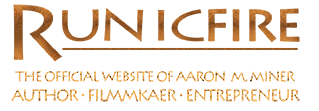I just returned from the San Francisco Writer’s Conference. This is my first year in attendance, and in the aftermath I have so much to say that my thoughts render me mute. What do I feel? I think I feel like I have finally come home.
The conference is of too great a scope for me to sum up in one post, but I discovered a common refrain: e-books are changing everything. One of the first panels I attended was about digital publishing. Guy Kawasaki spoke at Saturday morning’s keynote about—yes—digital publishing, and Friday’s afternoon keynote featured romance author Bella Andre, who discussed how she earned a spot on the New York Times Bestseller’s list as a self-published author.
Bella Andre’s rise as a self-published author emerges as a fascinating case study. Her career tells a story of dedication and perseverance which produced luck. When she began publishing her books through Amazon, she did not hold high hopes. However, an early sale of $250 in e-books encouraged Andre, and she redoubled her efforts. Through personal letter-writing campaigns, she developed a close connection with her readers which secured and grew her early audience. By developing relationships with illustrators, editors and other professionals, she improved the quality of her presentation. With her quick turnaround on novels she maintained a steady stream of content.
What propelled her to bestseller status was a fortuitous interview with the New York Times—scheduled just as 50 Shades of Grey became a media sensation. With the glut of exposure a mainstream media appearance can produce, she managed to sell in excess of one and a half million e-books.
Bella Andre is, without a doubt, an outlier. She owes her success to the timing of her career as much as she owes it to her own skill and determination. After her keynote, I overheard a pair of gentlemen—who I suspect were disgruntled publishers—claim that she was not even a self-published author. She had staff, they said, five of them. That made her the owner of a small publishing house. They appeared to agree that the idea of self-publishing was a myth, and you could hear the thorns at the ends of their words as they spoke.
But whether or not these men’s opinion is true, their point involves a fascinating observation: Bella Andre has a staff. Her operation comprises a small cadre of professionals, on whose aid she relies in making her artistic product. It is a familiar set-up. Where might we have seen this sort of arrangement before?
Ah, yes: the Renaissance.
The great artists of the 15th and 16thcenturies, including the venerable Leonardo da Vinci, did not work alone. They had as their support workshops staffed by assistants and apprentices. They would not have managed the number and scope of projects they pursued otherwise. Leonardo himself began his career as an apprentice in the workshop of master artist Verrocchio. Leonardo and his contemporaries relied upon commissions and patronage from wealthy individuals and organizations to make a living.
Patronage itself is making a return in the form of crowd funding. Kickstarter goes so far as to describe its model as “a mix of commerce and patronage,” and competing platforms often share this quality. While backers of a Kickstarter or IndieGogo campaign do receive a commercial benefit from their pledges in the form of rewards, a desire to support ideas that inspire them also drives their decisions. Rewards always have a non-material component.
These odd parallels between the emerging 21stcentury culture and 15th century Italy make me wonder if we are, in fact, entering a second Renaissance. The first Renaissance saw the demise of the feudal system and the end of the Catholic Church’s monopoly on the spiritual life of Europe. A revolution in media—the Guttenberg printing press—made this shift possible. The spread of literacy allowed new ideas to take hold in politics, religion, philosophy and science. Furthermore, the availability of print allowed for common men (though sadly, not so many women) to learn and shape this new zeitgeist. The old pillars of society weakened at their base.
Today’s circumstances resemble that bygone era’s. E-books eliminate scarcity with respect to literature. Though they may not all be commercial successes, according to SmashWords founder Mark Coker, e-books have produced “a glut” of titles that would never have been published before. E-books compose an increasing share of the market, are rendering print publishing obsolete, and are forcing bookstores (such as Borders) out of business.
This digital revolution affects other industries as well. I need not elaborate on the proliferation of digital movie downloads, the spread of Netflix and Hulu, as well as the rise of independent content on the web. Producer Marlyn Atlas, who spoke at a panel on Thursday, believes these new ways of distributing films will revive independent film. In a world where not only such a wealth of entertainment and culture exists at our fingertips, but where contributing to that culture can lie only a few keystrokes away, what challenges shall our traditions face in this new millennium? How will these capabilities change not only our art, but our philosophy, our religion, our governments—the balance of power in our time? What sort of world awaits us on the next page of history?
